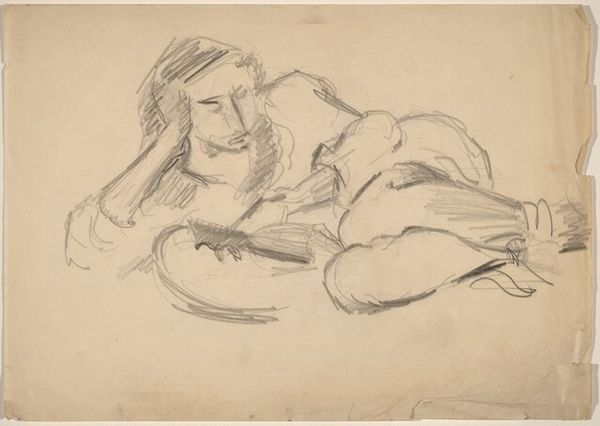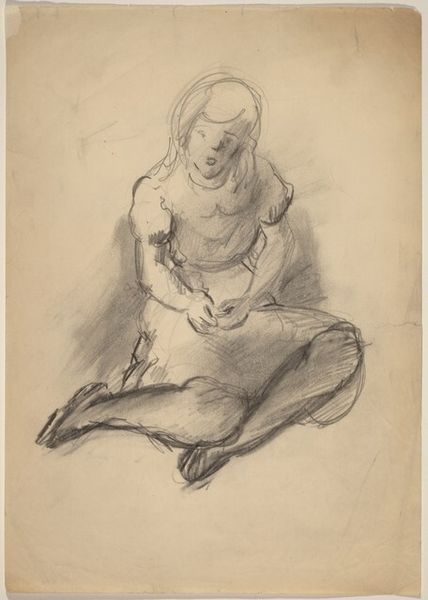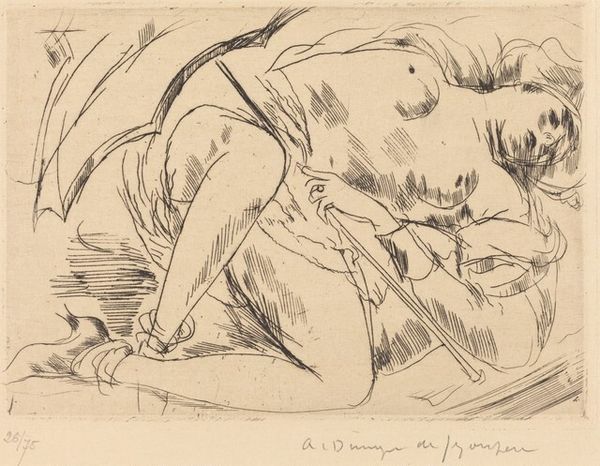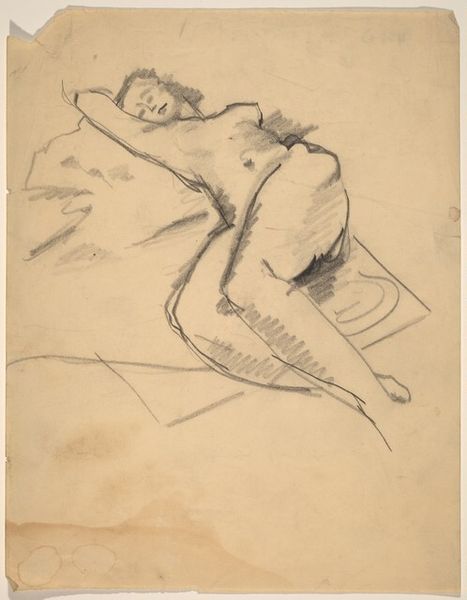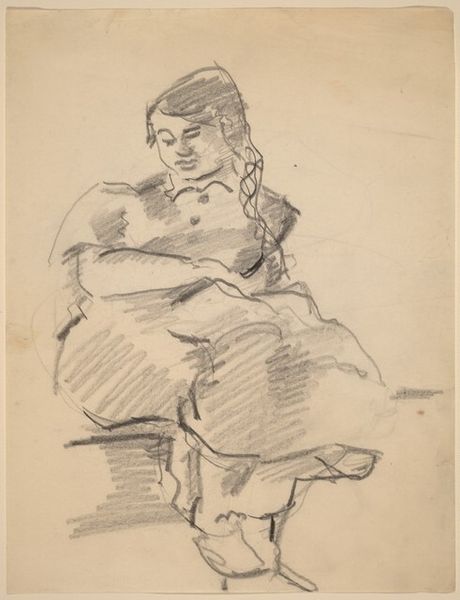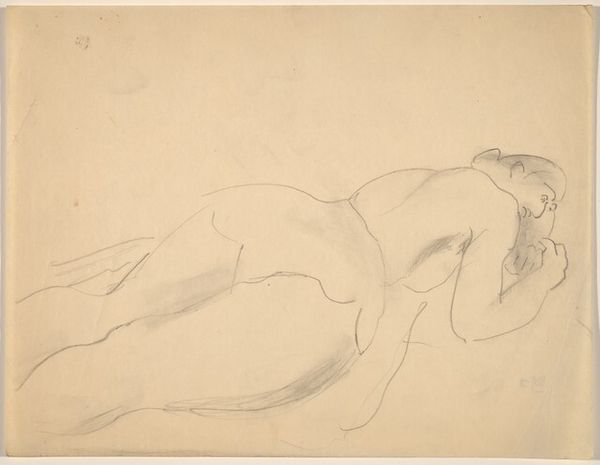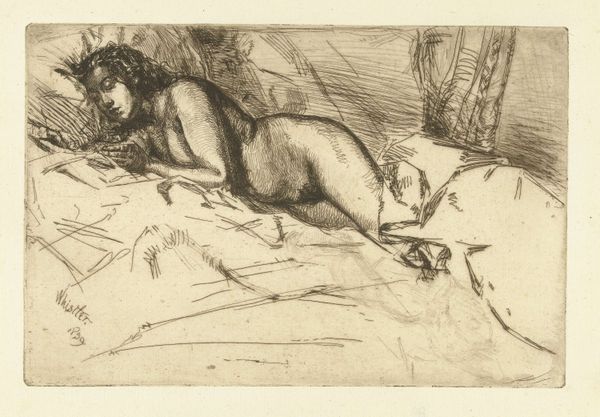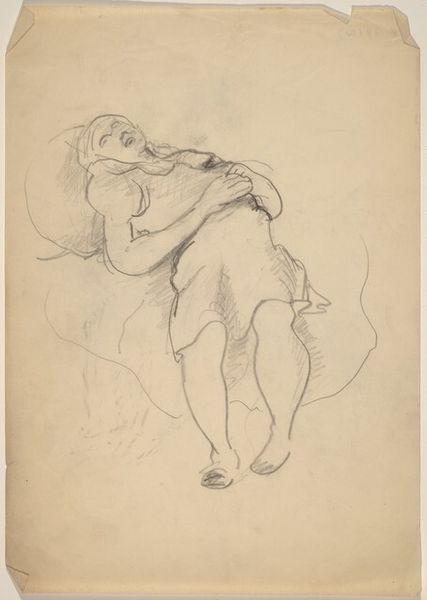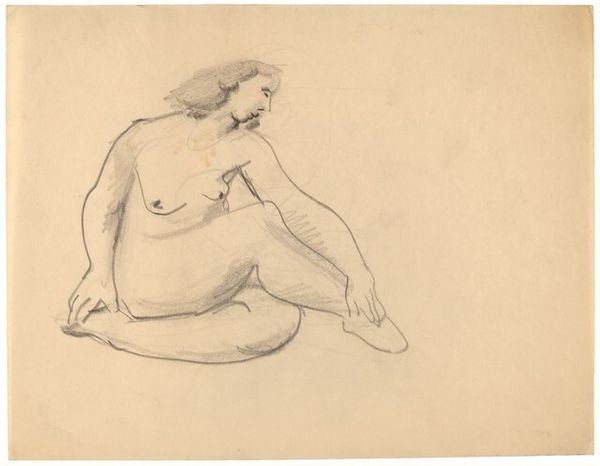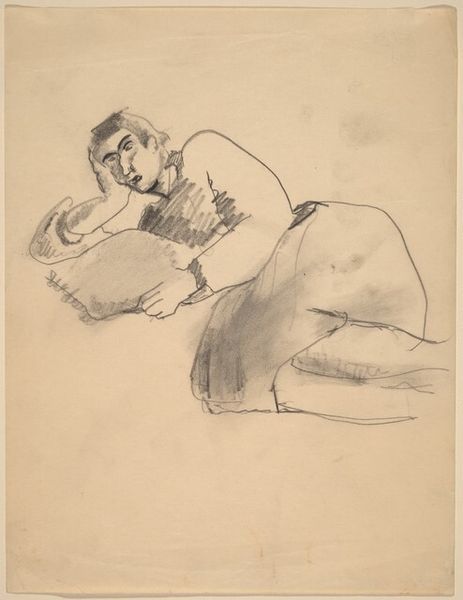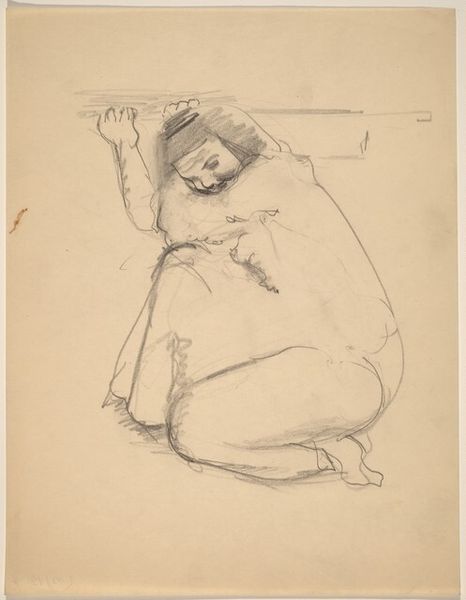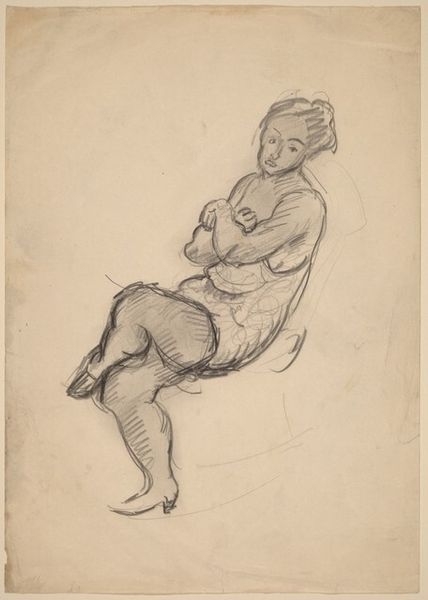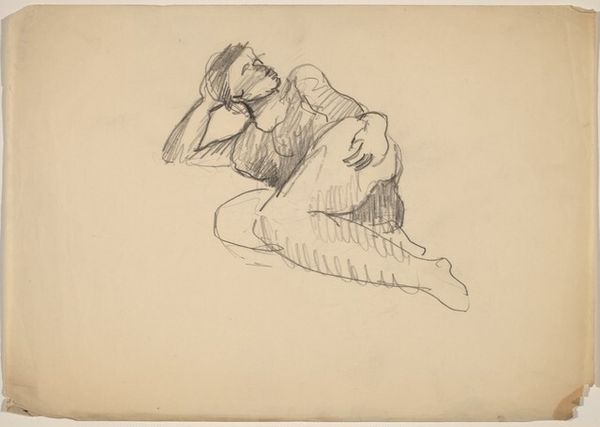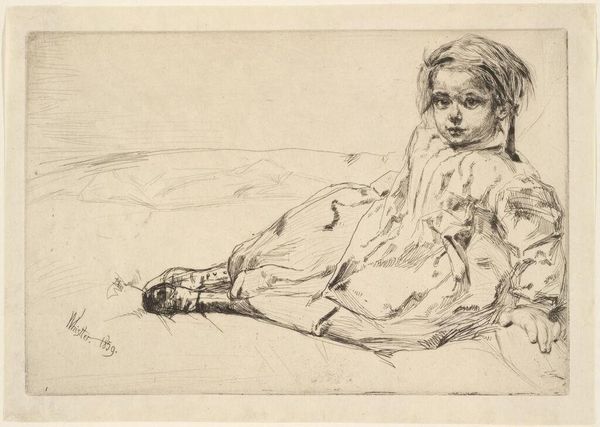
drawing, pencil
#
drawing
#
charcoal drawing
#
figuration
#
pencil drawing
#
pencil
#
academic-art
#
nude
Dimensions: overall: 21.6 x 30.4 cm (8 1/2 x 11 15/16 in.)
Copyright: National Gallery of Art: CC0 1.0
Curator: We're looking at "Woman Reclining, Knees Bent," a pencil and charcoal drawing. Editor: It has an immediate raw quality. The quick, almost nervous strokes lend an intimacy to the subject. I sense the artist working fast to capture the essence of the figure. Curator: This piece exemplifies the academic-art style with its strong emphasis on figuration and nude studies. It is credited to Mark Rothko, though most famously known for his color field paintings. It really contrasts to think of him in the midst of this art education tradition, producing this highly skilled but somewhat conventional nude study. Editor: There is that tension again, the labor is palpable, almost confrontational in its immediacy – far removed from the contemplative canvases he's lauded for. Pencil and charcoal can be deceptive, it feels almost performative, especially given the context of later abstract expressionism, these nudes serve as documentation for the construction and abstraction of the figure in an economical approach that defies the common myth of art existing in a vacuum. Curator: Exactly. We often frame artists through their mature styles, forgetting the foundations. The public exhibition and valuation of his later work would suggest these nude sketches as something far removed from high art. It forces you to examine the museum’s role in curating legacy. Editor: The contrast challenges the perceived hierarchies. It humanizes him, exposing the hours and the materials needed. The work highlights the art as a skilled occupation, but equally asks us, the viewers, to reflect on how we elevate certain forms of expression over others. Curator: The act of drawing itself became a valuable pursuit and exercise. And that reminds us of its inherent social implications, not just as personal expression but its status in the cultural ecosystem. Editor: And what of the labor that made Rothko's status possible in the first place. Curator: Food for thought indeed, maybe something that encourages viewers to re-examine assumptions when engaging with a figure as canonized as Mark Rothko. Editor: Agreed. A necessary discomfort that makes for a richer art experience.
Comments
No comments
Be the first to comment and join the conversation on the ultimate creative platform.
